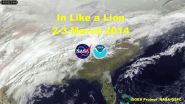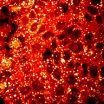(Press-News.org) Social media may fuel unprecedented civic engagement. Digital networks might make possible mass protest and revolution – think "Arab Spring." But sometimes and maybe even most of the time, a new study suggests, the accomplishments of online activism are much more modest.
Published in Sociological Science, the paper was co-authored by Kevin Lewis, of the University of California, San Diego's department of sociology, with Kurt Gray, department of psychology at the University of North Carolina, Chapel Hill, and Jens Meierhenrich, department of international relations, London School of Economics and Political Science.
The researchers focused their attention on the "Save Darfur Cause" on Facebook. Causes.com is a free online platform for activism and philanthropy, and its Facebook application allows users to create, join and donate to a variety of causes, from helping survivors of natural disasters to aiding specific nonprofits more generally. At its height, the Save Darfur Cause – by the Save Darfur Coalition, seeking to end genocide in Sudan – was one of the largest on the social network.
Lewis and colleagues analyzed the donation and recruitment activity of more than 1 million members of the Save Darfur Cause between May 2007 and January 2010. About 80 percent of the members had been recruited by other members and about 20 percent had joined independently.
Of these 1 million-plus members, 99.76 percent never donated any money and 72.19 percent never recruited anyone else.
The Save Darfur Cause on Facebook raised only about $100,000. While the average donation amounts were similar to more traditional fundraising methods ($29.06), the donation rate was much smaller: 0.24 percent. Compare that to mail solicitations which typically yield donation rates of 2 to 8 percent. The larger Save Darfur campaign, the researchers note, raised more than $1 million through direct-mail contributions in fiscal year 2008 alone.
Interestingly, those that had joined the Facebook cause independently were both more likely to donate and to recruit.
Social and financial contributions, though rare on both counts, also tended to go hand-in-hand. Those individuals that did recruit were nearly four times as likely as non-recruiters to donate. And donors were more than twice as likely as non-donors to recruit.
The data contained no demographic information on the cause's members. Nor, the researchers write, could they estimate "the personal significance of [the joining] gesture to participants or the symbolic impact of the movement to onlookers.
"It is possible," they add, "that the individuals in our data set contributed to Save Darfur in other meaningful but unobserved ways."
Still, Lewis and colleagues believe the study gives some valuable insights into collective action in a digital age.
"The study is an important counter-balance to unbridled enthusiasm for the powers of social media," said UC San Diego's Lewis. "There's no inherent magic. Social media can activate interpersonal ties but won't necessarily turn ordinary citizens into hyper-activists."
In the case of the Save Darfur campaign, the Causes Facebook app appears to have been "more marketing than mobilization," Lewis said. It seems to have failed to convert the initial act of joining into a more sustained set of behaviors. For the vast majority of the members, he said, "the commitment might have been only as deep as a click."
INFORMATION: END
Raising an army of armchair activists?
Study suggests that social-network support for causes might be only a click deep
2014-03-04
ELSE PRESS RELEASES FROM THIS DATE:
Satellite video captures the eastern US winter storm track
2014-03-04
VIDEO:
This animation of NOAA's GOES satellite data shows the progression of the major winter storm over the US Mid-Atlantic and southern states on Mar. 2 and 3.
Click here for more information.
As NOAA's GOES-East satellite sat in a fixed orbit in space it monitored and provided visible and infrared imagery of the major winter storm that hit the U.S. east coast on March 2 and 3. Now, that data has been compiled and made into a video at NASA.
On March 2 and 3, a major winter ...
Investigational drug may increase survival for some patients with advanced melanoma
2014-03-04
An experimental drug aimed at restoring the immune system's ability to spot and attack cancer halted cancer progression or shrank tumors in patients with advanced melanoma, according to a multisite, early-phase clinical trial at Johns Hopkins Kimmel Cancer Center and 11 other institutions. All patients had experienced disease progression despite prior systemic therapies, and most had received two or more prior treatments.
Patients who showed responses to the drug, nivolumab (anti-PD-1; BMS-936558; MDX-1106; ONO-4538), survived for an average 16.8 months following initiation ...
Imprint of chemotherapy linked to inflammation in breast cancer survivors
2014-03-04
Many breast cancer survivors experience fatigue and other debilitating symptoms that persist months to years after their course of treatment has ended.
Now researchers at the Winship Cancer Institute of Emory University have found clues that may explain how these symptoms can linger. Chemotherapy, one of the major treatments for breast cancer, can leave a long-lasting epigenetic imprint in the DNA of breast cancer patients' blood cells. That imprint is associated with biological signs of inflammation up to six months after the completion of treatment. Inflammation in ...
Common cancers evade detection by silencing parts of immune system cells
2014-03-04
Johns Hopkins researchers say they have identified a set of genes that appear to predict which tumors can evade detection by the body's immune system, a step that may enable them to eventually target only the patients most likely to respond best to a new class of treatment.
Immune therapy for ovarian, breast and colorectal cancer — treatments that encourage the immune system to attack cancer cells as the foreign invaders they are — has so far had limited success, primarily because the immune system often can't destroy the cancer cells. In a report published online Feb. ...
'Dimer molecules' aid study of exoplanet pressure, hunt for life
2014-03-04
Astronomers at the University of Washington have developed a new method of gauging the atmospheric pressure of exoplanets, or worlds beyond the solar system, by looking for a certain type of molecule.
And if there is life out in space, scientists may one day use this same technique to detect its biosignature — the telltale chemical signs of its presence — in the atmosphere of an alien world.
Understanding atmospheric pressure is key to knowing if conditions at the surface of a terrestrial, or rocky, exoplanet might allow liquid water, thus giving life a chance.
The ...
Cholesterol study suggests new diagnostic, treatment approach for prostate cancer
2014-03-04
WEST LAFAYETTE, Ind. - Researchers have discovered a link between prostate cancer aggressiveness and the accumulation of a compound produced when cholesterol is metabolized in cells, findings that could bring new diagnostic and treatment methods.
Findings also suggest that a class of drugs previously developed to treat atherosclerosis might be repurposed for treatment of advanced prostate cancer.
The research showed depletion of the compound cholesteryl ester significantly reduced prostate cancer cell proliferation, impaired its ability to invade a laboratory tissue ...
Young children form first impressions from faces
2014-03-04
Just like adults, children as young as 3 tend to judge an individual's character traits, such as trustworthiness and competence, simply by looking at the person's face, new research shows. And they show remarkable consensus in the judgments they make, the findings suggest.
The research, led by psychological scientist Emily Cogsdill of Harvard University, shows that the predisposition to judge others based on physical features starts early in childhood and does not require years of social experience. The study is published in Psychological Science, a journal of the Association ...
Research connects drug war violence in Mexico with desensitization in social media
2014-03-04
Amid times of crisis, citizens often turn to social media as a method to share information, make observations and vent. But as a Georgia Tech professor's research into social media use amid the Mexican drug war shows, posts can reveal growing numbness, or desensitization, during times of protracted violence and stress.
Munmun De Choudhury, formerly of Microsoft Research and now an assistant professor in the School of Interactive Computing at Georgia Tech, led the research. Her team's paper, "'Narco' Emotions: Affect and Desensitization in Social Media during the Mexican ...
Spiral galaxy spills blood and guts
2014-03-04
This new Hubble image shows spiral galaxy ESO 137-001, framed against a bright background as it moves through the heart of galaxy cluster Abell 3627. This cluster is violently ripping the spiral's entrails out into space, leaving bright blue streaks as telltale clues to this cosmic crime.
This new Hubble image shows ESO 137-001, a galaxy located in the southern constellation of Triangulum Australe (The Southern Triangle) -- a delicate and beautiful spiral galaxy, but with a secret.
This image not only captures the galaxy and its backdrop in stunning detail, but also ...
Bright pulses of light could make space veggies more nutritious, says CU-Boulder study
2014-03-04
Exposing leafy vegetables grown during spaceflight to a few bright pulses of light daily could increase the amount of eye-protecting nutrients produced by the plants, according to a new study by researchers at the University of Colorado Boulder.
One of the concerns for astronauts during future extended spaceflights will be the onslaught of eye-damaging radiation they'll be exposed to. But astronauts should be able to mitigate radiation-induced harm to their eyes by eating plants that contain carotenoids, especially zeaxanthin, which is known to promote eye health.
Zeaxanthin ...
LAST 30 PRESS RELEASES:
Novel camel antimicrobial peptides show promise against drug-resistant bacteria
Scientists discover why we know when to stop scratching an itch
A hidden reason inner ear cells die – and what it means for preventing hearing loss
Researchers discover how tuberculosis bacteria use a “stealth” mechanism to evade the immune system
New microscopy technique lets scientists see cells in unprecedented detail and color
Sometimes less is more: Scientists rethink how to pack medicine into tiny delivery capsules
Scientists build low-cost microscope to study living cells in zero gravity
The Biophysical Journal names Denis V. Titov the 2025 Paper of the Year-Early Career Investigator awardee
Scientists show how your body senses cold—and why menthol feels cool
Scientists deliver new molecule for getting DNA into cells
Study reveals insights about brain regions linked to OCD, informing potential treatments
Does ocean saltiness influence El Niño?
2026 Young Investigators: ONR celebrates new talent tackling warfighter challenges
Genetics help explain who gets the ‘telltale tingle’ from music, art and literature
Many Americans misunderstand medical aid in dying laws
Researchers publish landmark infectious disease study in ‘Science’
New NSF award supports innovative role-playing game approach to strengthening research security in academia
Kumar named to ACMA Emerging Leaders Program for 2026
AI language models could transform aquatic environmental risk assessment
New isotope tools reveal hidden pathways reshaping the global nitrogen cycle
Study reveals how antibiotic structure controls removal from water using biochar
Why chronic pain lasts longer in women: Immune cells offer clues
Toxic exposure creates epigenetic disease risk over 20 generations
More time spent on social media linked to steroid use intentions among boys and men
New study suggests a “kick it while it’s down” approach to cancer treatment could improve cure rates
Milken Institute, Ann Theodore Foundation launch new grant to support clinical trial for potential sarcoidosis treatment
New strategies boost effectiveness of CAR-NK therapy against cancer
Study: Adolescent cannabis use linked to doubling risk of psychotic and bipolar disorders
Invisible harms: drug-related deaths spike after hurricanes and tropical storms
Adolescent cannabis use and risk of psychotic, bipolar, depressive, and anxiety disorders
[Press-News.org] Raising an army of armchair activists?Study suggests that social-network support for causes might be only a click deep



